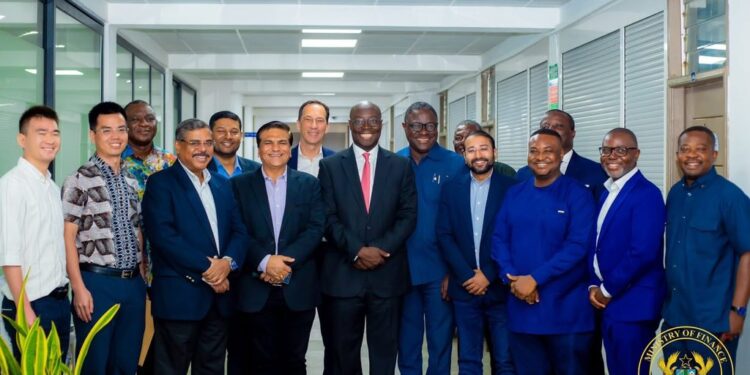The decision to disclose movie sales figures and box office earnings is ultimately up to the movie production houses and the relevant industry standards and regulations.
However, many production houses do publicly disclose box office numbers as part of their marketing and promotion strategies.
Box office earnings are often reported by industry publications and media outlets, and the information is widely available to the public.
These figures are used to gauge a movie’s success and popularity, and they also influence future investment decisions for production houses and investors.
While some production houses choose to disclose their movie sales figures, others prefer to keep this information private for various reasons, such as protecting trade secrets, maintaining competitive advantage, or managing investor expectations.
Ghanaian actress, Salma Mumin has urged industry players in the sector to publish their gross revenue from sales, film premieres, and other showings to entice potential investors since not doing that has been a major setback in the industry’s growth.
“The practice is a major factor in the lack of interest and investments in the movie industry since prospective investors are in the dark about the industry’s potential. Yes, we can release our figures. There is nothing wrong with that. I don’t even know why we hide the numbers. They should be out there because we honestly need sponsors and support.
“After all, filmmakers have amazing storylines. Also, producing a high-quality movie these days requires a lot of funding since we are now dealing with digital streaming platforms that demand high-quality content. So, just imagine even the kinds of equipment and even cast one would need to do that.”
Salma Mumin
Ultimately, it is a business decision made by each production house to disclose their movie sales figures.
Actors Encourage Substantial Investment in Ghanaian Film Production
Increased and substantial investment in Ghanaian film production has numerous benefits for the country’s economy and cultural development.

Films are a powerful medium for preserving and promoting Ghanaian culture. By investing in local film production, the country showcases its unique traditions, languages, and stories to a global audience. This helps preserve cultural heritage and promote a sense of pride and identity among Ghanaians.
Movies often inspire people to visit the locations where they were shot, leading to increased tourism. Ghana has a rich cultural heritage, beautiful landscapes, and historical sites that should be showcased through films. Investment in film production attracts more tourists, stimulates the local economy, and creates opportunities for tourism-related businesses.
Ghanaian films have gained international recognition in recent years, with movies like “Beasts of No Nation” and “Azali” receiving critical acclaim. Increased investment helps sustain this momentum, allowing Ghanaian filmmakers to tell their stories on a global stage and compete with other internationally renowned film industries.
Ghanaian actors, Prince David Osei and Peter Ritchie also encouraged increased and substantial investment in Ghanaian film production.
The actors argued that Ghana’s movie industry had huge buried potential and that the right actions must be taken to attract investors.
“If we get good investors into this business, we are all going to benefit. We are going to create room for employment because, whenever we are on set filming, we employ not less than 50 people. So you see, there is money to be made in this business.”
Prince David Osei

Actor Peter Ritchie suggested that potential investors should be part of the filmmaking process.
“In every business, there are losses and there are gains. So, since we want to put out what we are making, the investors must also come in and be part of the process, to see each stage of the journey, so they can also appreciate what goes into making movies, and when the results come, they will have a better understanding of everything. It should be a ‘win-win’ relationship and not a one-sided affair.”
Peter Ritchie
To ensure the effectiveness of increased investment, it is important to establish a supportive ecosystem that includes funding mechanisms, training programs, infrastructure development, and the protection of intellectual property rights.
Collaboration between the government, private sector, and international partners can play a crucial role in achieving these goals.
READ ALSO: Urgent Need for Equity in NTDs Management in Ghana





















